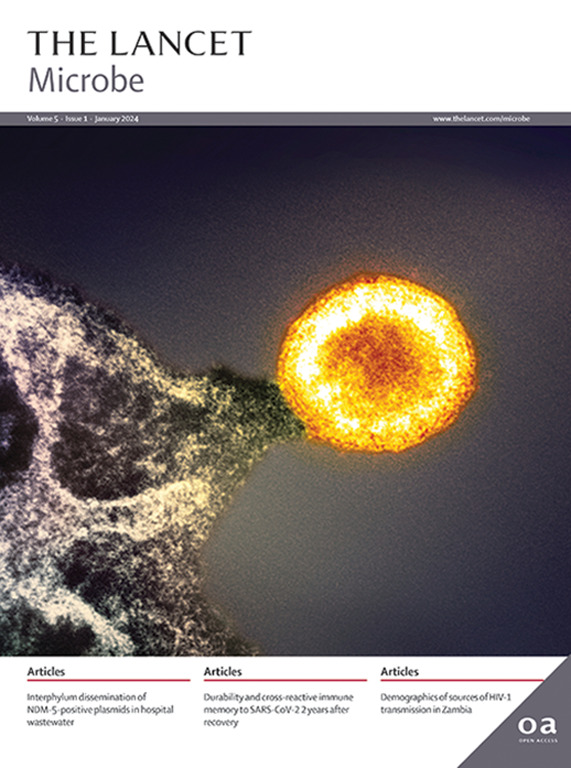Therapeutics for Nipah virus disease: a systematic review to support prioritisation of drug candidates for clinical trials
IF 20.9
1区 生物学
Q1 INFECTIOUS DISEASES
引用次数: 0
Abstract
Nipah virus disease is a bat-borne zoonosis with person-to-person transmission, a case-fatality rate of 38–75%, and well recognised potential to cause a pandemic. The first reported outbreak of Nipah virus disease occurred in Malaysia and Singapore in 1998, which has since been followed by multiple outbreaks in Bangladesh and India. To date, no therapeutics or vaccines have been approved to treat Nipah virus disease, and only few such candidates are in development. In this Review, we aim to assess the safety and efficacy of the therapeutic options (monoclonal antibodies and small molecules) for Nipah virus disease and other henipaviral diseases to support prioritisation of drug candidates for further evaluation in clinical trials. At present, sufficient evidence exists to suggest trialling 1F5, m102.4, and remdesivir (alone or in combination) for prophylaxis and early treatment of Nipah virus disease. In addition to well designed clinical efficacy trials, in-vivo pharmacokinetic–pharmacodynamic studies are needed to optimise the selection and dosing of therapeutic candidates in animal challenge and natural human infection.
尼帕病毒病的治疗方法:支持确定临床试验候选药物优先次序的系统性审查。
尼帕病毒病是一种蝙蝠传播的人畜共患病,具有人传人的特点,病死率高达 38-75%,而且公认有可能造成大流行。1998 年,马来西亚和新加坡首次报告爆发尼帕病毒病,此后孟加拉国和印度也爆发了多起疫情。迄今为止,还没有治疗尼帕病毒病的疗法或疫苗获得批准,只有少数候选药物正在研发中。在本《综述》中,我们旨在评估尼帕病毒病和其他鸡病毒病治疗方案(单克隆抗体和小分子药物)的安全性和有效性,以支持候选药物在临床试验中进行进一步评估的优先顺序。目前,已有足够的证据建议试用 1F5、m102.4 和雷米替韦(单独或联合使用)来预防和早期治疗尼帕病毒病。除了精心设计的临床疗效试验外,还需要进行体内药代动力学-药效学研究,以便在动物挑战和人类自然感染中优化候选疗法的选择和剂量。
本文章由计算机程序翻译,如有差异,请以英文原文为准。
求助全文
约1分钟内获得全文
求助全文
来源期刊

Lancet Microbe
Multiple-
CiteScore
27.20
自引率
0.80%
发文量
278
审稿时长
6 weeks
期刊介绍:
The Lancet Microbe is a gold open access journal committed to publishing content relevant to clinical microbiologists worldwide, with a focus on studies that advance clinical understanding, challenge the status quo, and advocate change in health policy.
 求助内容:
求助内容: 应助结果提醒方式:
应助结果提醒方式:


